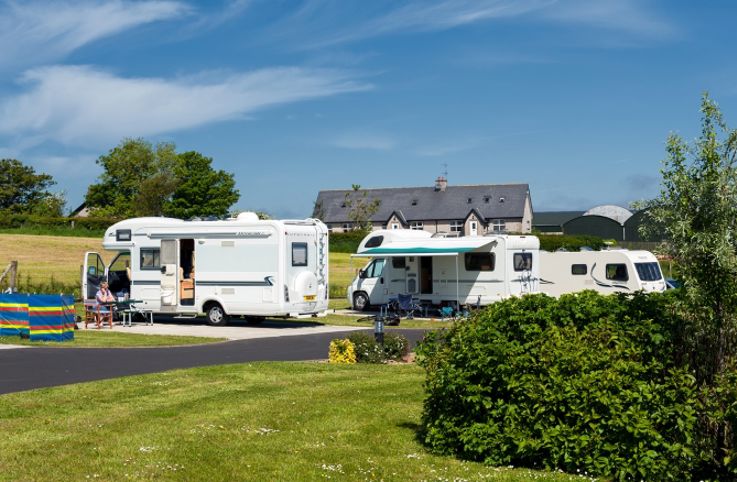Contents
- What do you need to consider?
- What are the different accommodation categories?
- Legal considerations
- Developing booking terms and conditions
- Tourist Accommodation Quality Grading Scheme
- Hotel Accommodation
- Guest House Accommodation
- Bed & Breakfast
- Guest Accommodation
- Self-catering Accommodation
- Hostel Accommodation
- Bunk House
- Campus Accommodation
- Camping, Caravanning and Glamping
- Grading of Caravan and Camping Parks
- Glamping Accommodation
- Advice and next steps for tourist accommodation providers
- Insurance and Risk Management for Tourist Accommodation
- Creating a Guest Information Pack
- Welcome Schemes
- A Welcome Hamper - the best way to welcome your guests
- An insight into Exempted Camping
- Temporary campsites & the ‘28-Day rule’
- Tourist Accommodation Associations
Contents
- What do you need to consider?
- What are the different accommodation categories?
- Legal considerations
- Developing booking terms and conditions
- Tourist Accommodation Quality Grading Scheme
- Hotel Accommodation
- Guest House Accommodation
- Bed & Breakfast
- Guest Accommodation
- Self-catering Accommodation
- Hostel Accommodation
- Bunk House
- Campus Accommodation
- Camping, Caravanning and Glamping
- Grading of Caravan and Camping Parks
- Glamping Accommodation
- Advice and next steps for tourist accommodation providers
- Insurance and Risk Management for Tourist Accommodation
- Creating a Guest Information Pack
- Welcome Schemes
- A Welcome Hamper - the best way to welcome your guests
- An insight into Exempted Camping
- Temporary campsites & the ‘28-Day rule’
- Tourist Accommodation Associations
An insight into Exempted Camping
For those just wanting to set up a small basic campsite with no more than 5 pitches for caravans and motorhomes, then this can be achieved without the need for planning permission or a site licence, but it will require a valid exemption certificate.

Overview
Small 5-pitch sites, often called hideaway sites, are very popular with the many campers who prefer to enjoy their leisure time in a quieter and often more secluded environment, rather than be amongst the many on a larger, busier and formally laid out campsite or holiday park.
Also, for small businesses such as a pub, a farm, a golf course or a visitor attraction with an expanse of land capable of accommodating 5 pitches, this can be a lucrative and rewarding diversification model. It is an excellent way to tempt new visitors to an area, who whilst enjoying their breaks, will also bring welcome business and support to local communities.
Partnership with an exempted organisation
There are a number of member organisations who are legally classified as “exempted organisations” under both The Caravan Sites and Control of Development Act 1960 and the Caravans Act (Northern Ireland) 1963. These organisations have the ability to issue annual exemption certificates to landowners to run small 5-pitch touring sites, for the exclusive use of their members.
There are 2 leading exempted organisations who between them issue certificates to over 3,500 small sites across the UK and Northern Ireland –
- The Caravan and Motorhome Club (CAMC) - Certificated Locations (CL)
- The Camping and Caravanning Club (CCC) - Certificated Sites (CS)
Both Clubs run their exempted camping networks in a fairly similar way, the most noticeable difference being that CCC also provide some CS’s with a certificate for 5 pitches and up to an additional 10 tents.
When issued with a certificate, 5-pitch campsite owners are obliged to comply with a number of conditions, including -
- Only take a maximum of five units (caravans/motorhomes/trailer tents)
- Visitors to the campsite must be members of the respective club.
- Visitors should be touring for leisure and recreational purposes only.
- The campsite is for recreational use only.
- The campsite is not for storage or permanently sited vans.
Minimum standard facilities
The minimum standard facilities required to set up a basic 5-pitch campsite are -
- Level land of at least ½ an acre
- Safe approach and access for arrivals & departures
- A safe drinking water supply
- Secure emptying point for chemical waste water
- An adequate number of covered bins for the disposal of dry refuse
- Public Liability Insurance.
Some small sites may want to provide additional facilities. However, planning permission is likely to be required if there is a need to carry out any major works, such as – constructing buildings or other structures, engineering & groundworks works, all-weather surfacing and septic tank or effluent treatment plant installation. Any proposed works should be discussed with the local planning authority, who will advise if planning permission is required.